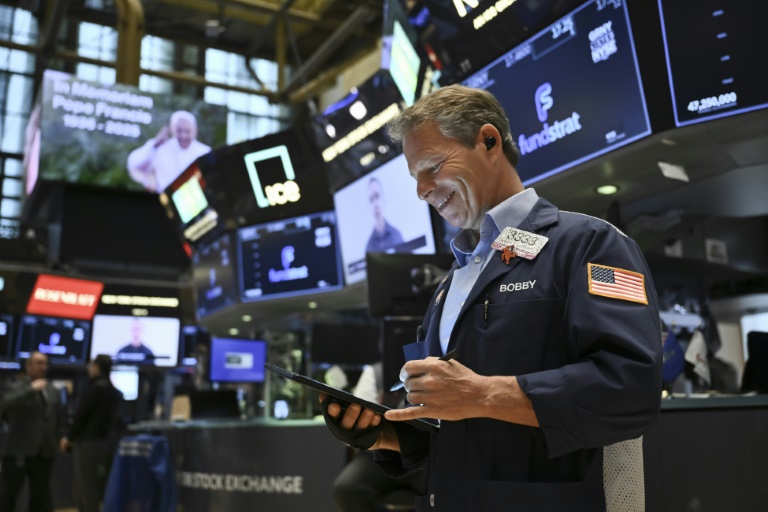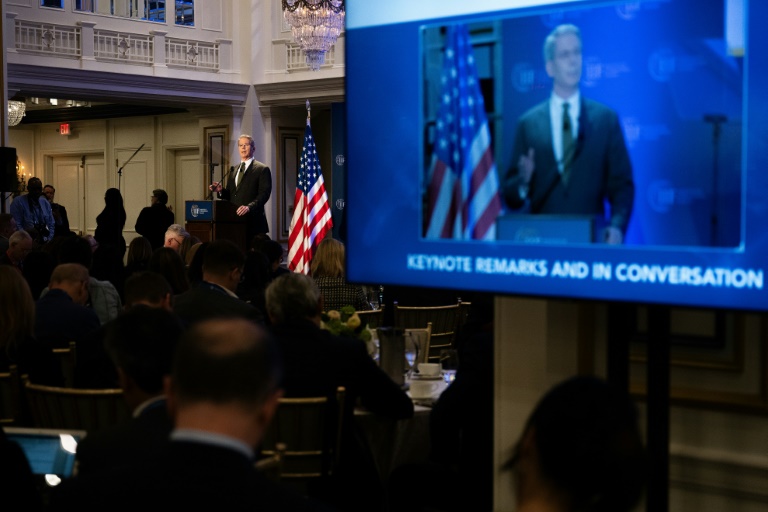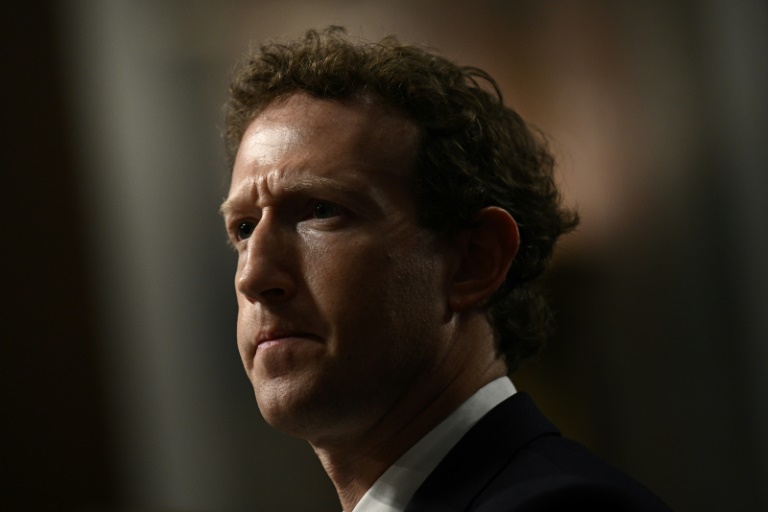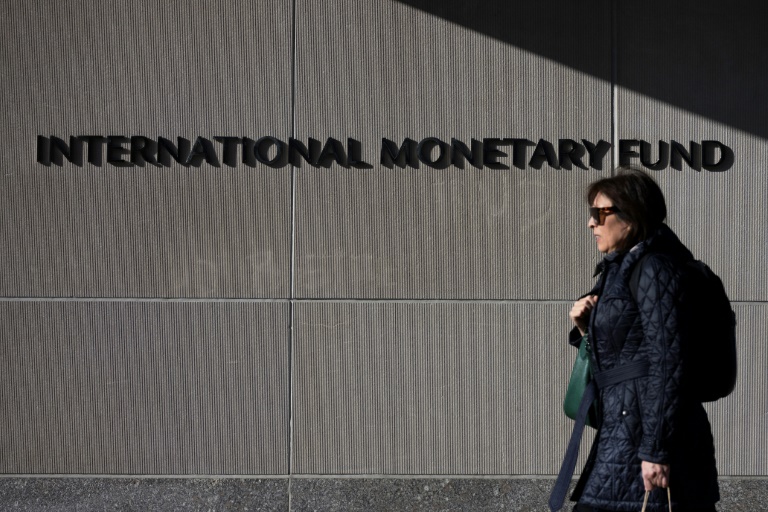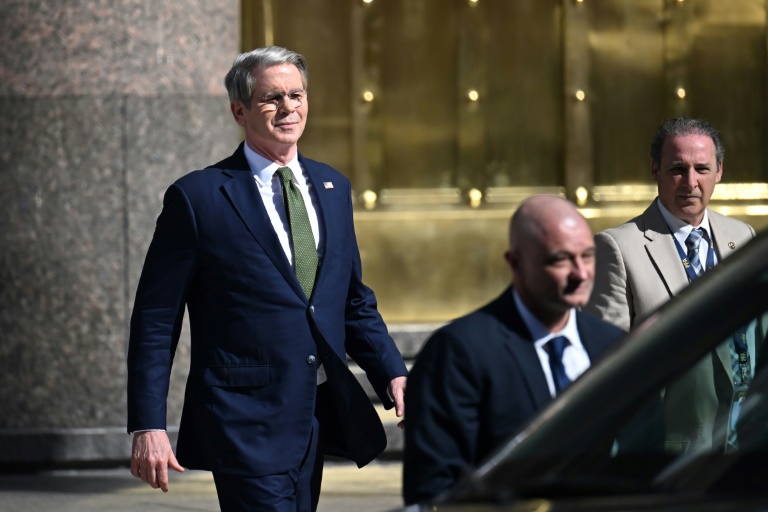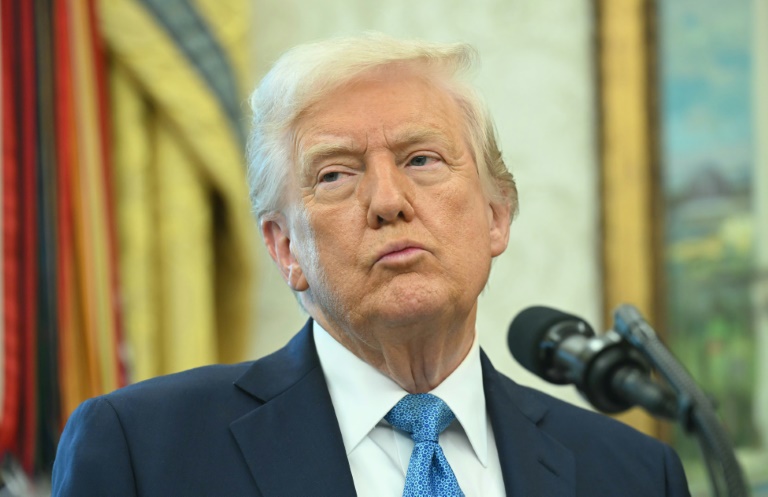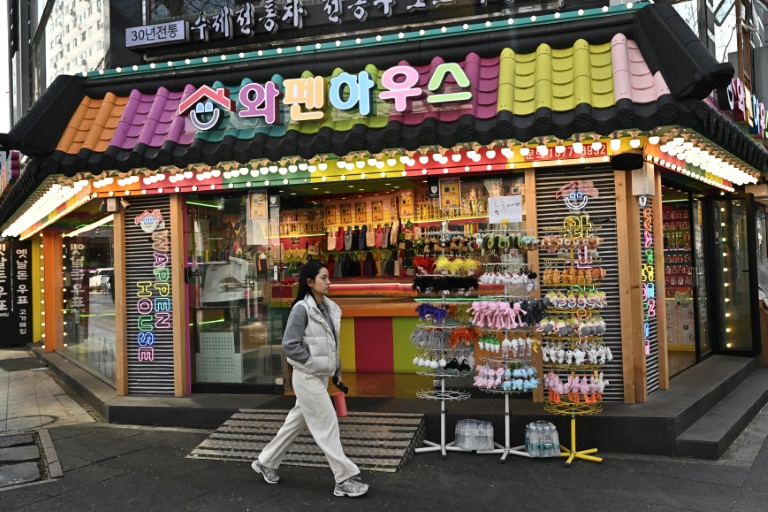Hong Kong (AFP) – South Korean stocks tumbled Monday as the country was racked with political uncertainty after President Yoon Suk Yeol escaped impeachment following his brief imposition of martial law last week. The retreat came on a tough day for Asian markets despite another record on Wall Street, though Hong Kong bounced in the afternoon after China said it would adopt a looser approach to monetary policy. Traders were also keeping tabs on Syria after President Bashar al-Assad’s removal.
Investors in Seoul were on edge after a near-total boycott of Saturday’s impeachment vote by Yoon’s People Power Party (PPP) doomed it to failure. However, the main opposition party stated Sunday it would attempt the vote again, while police arrested the defense minister in charge of the martial law operation and the interior minister resigned. They and Yoon are being investigated for alleged insurrection, and the president was also hit Monday with a travel ban. The crisis has fueled concerns about Asia’s number four economy, which was already struggling and faces further pain as Donald Trump heads back to the White House, threatening to resume his hardball trade policy.
Michael Wan at MUFG noted that the hit to the country’s markets “may include slower tourism inflows, weaker domestic demand, and a dent to corporate sentiment, especially if street protests become more vociferous and the budget passage remains in stalemate.” He emphasized that “South Korea was already one of the more vulnerable forex markets in Asia to Trump 2.0’s policies, and the political uncertainty also comes at a juncture just when leadership is needed to navigate these significant global policy shifts.” The won was trading at around 1,435 per dollar Monday, compared with 1,413 on Friday.
In contrast, Hong Kong stocks jumped as top Chinese leaders met to draw up their economic plans for next year. The Politburo, the top decision-making body led by President Xi Jinping, announced it would embrace a looser monetary policy. Shanghai ended lower, closing before the announcement. Officials stated that they should “implement a more active fiscal policy and an appropriately relaxed monetary policy,” according to official news agency Xinhua. This decision comes as Beijing prepares for Trump’s second presidency amid concerns of another painful trade war between the superpowers.
Data released Monday showed Chinese consumer prices rose less than expected last month, reinforcing the need for more support following a raft of measures at the end of September. Analysts at National Australia Bank said, “Hopes are for a clear commitment to support the economic recovery and close the shortfall in domestic demand. Growth and deficit targets are likely to be discussed.”
Elsewhere in Asia, Tokyo, Taipei, and Jakarta rose, while Mumbai, Manila, Bangkok, and Wellington fell. Singapore and Sydney were flat. Traders had received a healthy lead from Wall Street, where the S&P 500 and Nasdaq both ended at record highs after figures showed the US economy added more jobs than forecast last month. Focus is now on the Federal Reserve’s policy meeting next week, when it is expected to cut interest rates again.
Developments in Syria are also being tracked after Assad’s fall at the weekend as rebels swept into Damascus, triggering celebrations across the country and beyond. The government fell 11 days after the rebels began a surprise advance, more than 13 years after Assad’s crackdown on anti-government protests ignited Syria’s civil war.
The euro remained on the back foot but slightly stronger than last week when it was hit after France’s new government fell following a no-confidence vote. The European Central Bank is expected to lower borrowing costs this week. President Emmanuel Macron, who had faced calls to step down, lifted sentiment when he stated he would serve out his term and that a budget could be passed in the coming weeks. Macron held talks with French political leaders on both the left and right on Friday as he sought to quickly name a new prime minister after Michel Barnier’s ouster over his 2025 budget plan.
London, Paris, and Frankfurt rose at the open.
– Key figures around 0810 GMT –
Seoul – Kospi: DOWN 2.8 percent at 2,360.58 (close)
Tokyo – Nikkei 225: UP 0.2 percent at 39,160.50 (close)
Hong Kong – Hang Seng Index: UP 2.8 percent at 20,414.09 (close)
Shanghai – Composite: DOWN 0.1 percent at 3,402.53 (close)
London – FTSE 100: UP 0.4 percent at 8,343.64
Euro/dollar: DOWN at $1.0554 from $1.0566 on Friday
Pound/dollar: UP at $1.2752 from $1.2740
Dollar/yen: UP at 150.33 yen from 149.97 yen
Euro/pound: DOWN at 82.77 from 82.93 pence
West Texas Intermediate: UP 0.8 percent at $67.73 per barrel
Brent North Sea Crude: UP 0.7 percent at $71.63 per barrel
New York – Dow: DOWN 0.3 percent at 44,642.52 points (close)
© 2024 AFP


